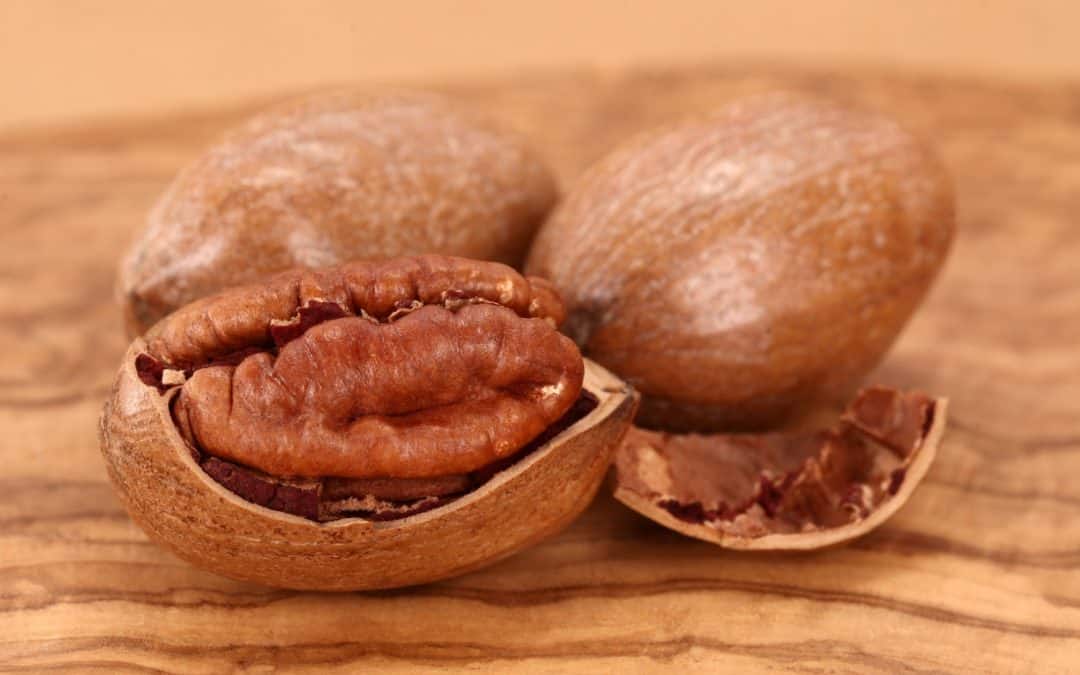Pecan (Caryaillinoinensis) is a species of hickory native to northern Mexico and the southern United States. The seed is an edible nut used as a snack and in various recipes, such as praline candy and pecan pie. Pecans first came on the food scene in Native American history around the year 1500, its name originating from the Algonquins meaning “a nut that requires a stone to crack.” Pecan wood is used in making furniture and wood flooring, as well as a flavoring fuel for smoking meats.
Some of the nutrients found in large amounts in pecans are manganese, copper and zinc, which play an important role in reducing inflammation, brain health and even the symptoms of PMS.
Healthy heart
Pecan is rich in thiamine which helps to improve heart function. Incorporating pecans in the diet can significantly improve insulin sensitivity. The monounsaturated fat pecans have can significantly reduce blood pressure, as well as decrease overall cardiac-related disease.
Properties
Type: Nut
Element: Earth
Color: Brown
Taste: Sweet, Astringent
Natural Attributes: Oily, Heavy
Dosha impact: Kapha +, Pitta +, Vata –
Tissue impact (Vipak): Nourishing
Thermal impact (Virya): Heating
Digestive impact (Agni): Relatively easy to digest
Moves energy: Inwards, Downwards
Channels (Srotas): Blocks
Strength (Bala): Improves strength and immunity
Sturdiness (Ojas): +
Mind (Manas): Sattvic
Feces: Moves
Urine:
Occasion: Autumn, Winter
Nutrient: Manganese, Copper, Thiamine
Chinese medicine syndromes: Kidney Yin and Yang Deficiency
Medicinal properties
- Nourishment (rasa): Weight gain, Nutritive
- Blood-circulation-liver:Cardiotonic
- Vital essence and strength: Builds stamina
Harmful for:

